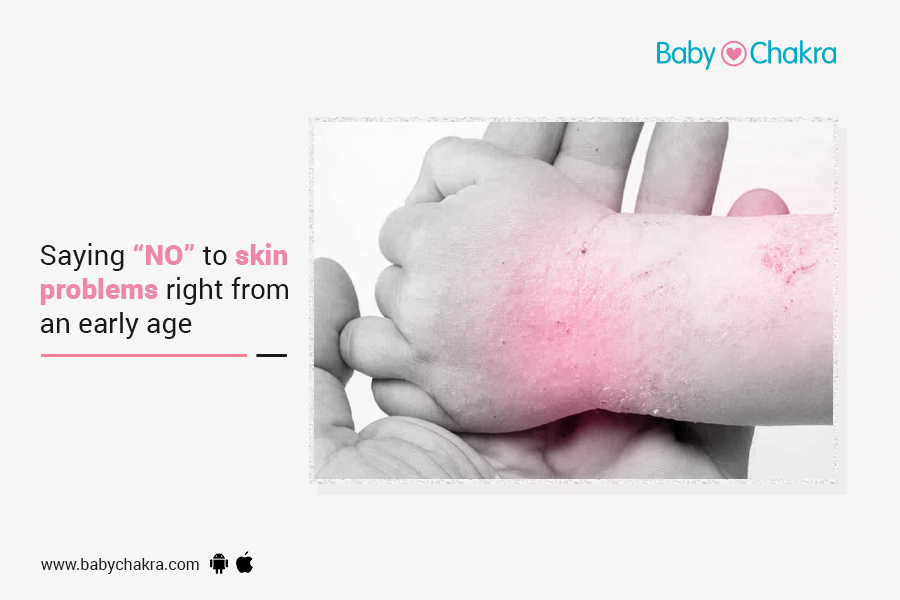
Saying “NO” To Skin Problems Right From An Early Age
26 Sep 2022 | 2 min Read
Dr Ameesha Mahajan
Author | 1 Articles
Skin problems in kids have become very normal nowadays. It’s important that as parents we start taking precautions to avoid skin problems right from an early age so that our kids do not face skin problems as they grow. To support the same start with good skincare for your kids. Use gentle cleansers and not the ones that are harsh and have anti-bacterial properties, moisturize their skin immediately after bathing (within 2-5 mins after bathing), use sunscreen (special kid’s sunscreen) for kids any time after 6montsh to 1 year of age, and moisturize their skin well before bedtime at night.
In case your kids suffer from frequent skin problems like bumps, pimples, or any kind of infections, it could be a sign of atopic dermatitis or it could be due to unhealthy eating like binging of chocolates, chips, and junk foods. Instead of offering junk foods ass more prebiotics and probiotic foods, nuts, vegetables, etc to your kid’s diet. Additionally, you can also start with supplements like zinc, vitamin D, and prebiotic and probiotic supplements for your kids to prevent skin problems at a later age on a doctor’s recommendation.
Lastly, for kids that experience skin dryness or eczema, moisturize the skin well (at least 2-3 times a day), use special body washes (oat-based), use fragrance-free products, avoid staying in air conditioners the entire day, rinse the clothes thoroughly in case you use antiseptic liquids on clothes, avoid using antibacterial soaps and cleansers, pay attention to foods that are triggering eczema and avoid them, and avoid using sulphate free shampoo.
A


Related Topics for you
Suggestions offered by doctors on BabyChakra are of advisory nature i.e., for educational and informational purposes only. Content posted on, created for, or compiled by BabyChakra is not intended or designed to replace your doctor's independent judgment about any symptom, condition, or the appropriateness or risks of a procedure or treatment for a given person.
